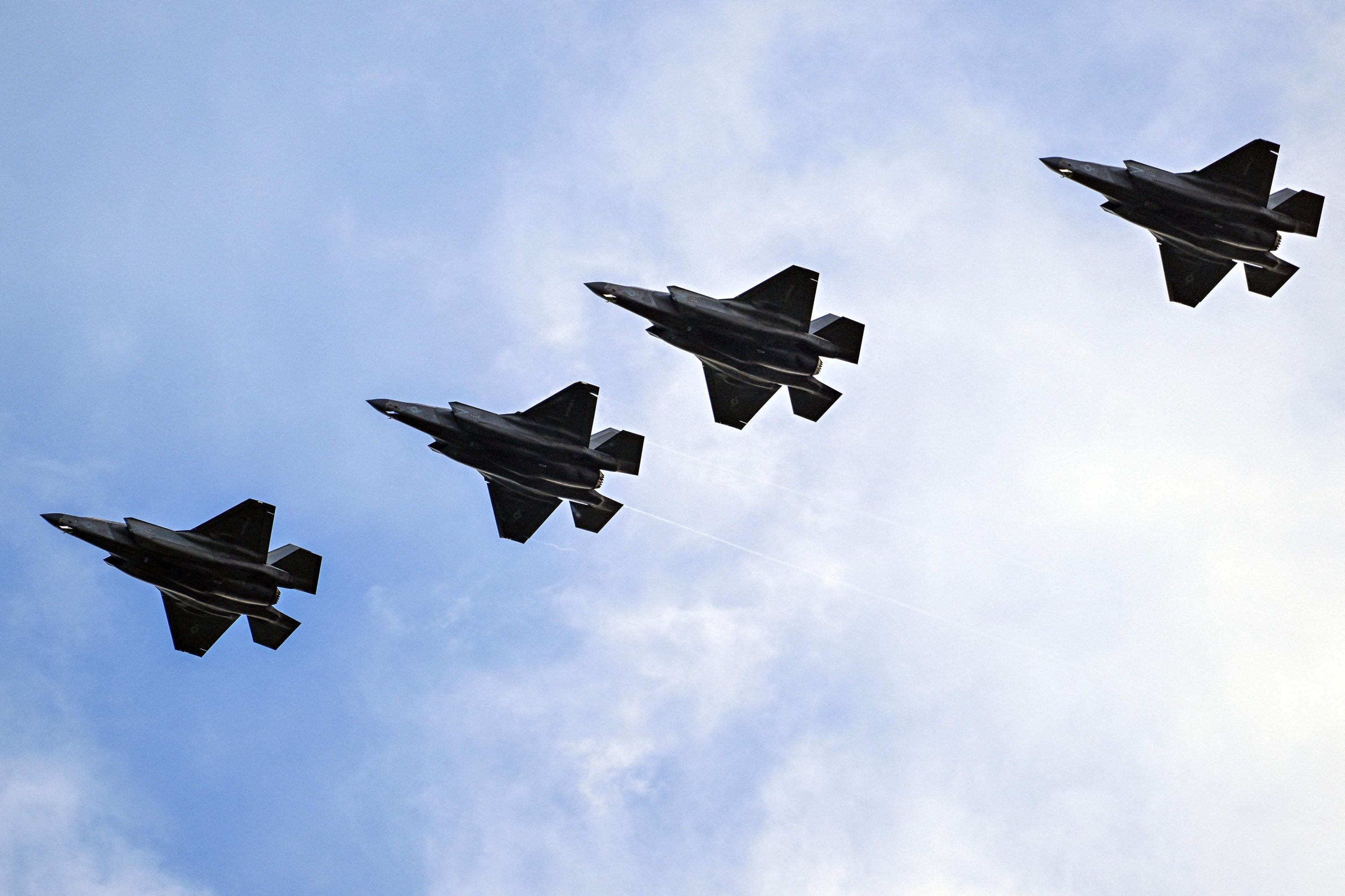U.S. Deploys F-35 Fighter Jets to Puerto Rico for Anti-Drug Operations
On September 22, 2025, the U.S. deployed 10 F-35 fighter jets to Puerto Rico, officially for anti-drug operations, amid escalating military activity in the Caribbean widely seen as targeting Venezuela’s government.

The United States significantly escalated its military presence in the Caribbean on September 22, 2025, deploying 10 F-35 stealth fighter jets to Puerto Rico as part of what the Trump administration describes as a counternarcotics and counterterrorism campaign. The move follows a series of U.S. military strikes this month on boats Washington claims were smuggling drugs, actions that have left at least 14 people dead and drawn sharp criticism from regional governments and human rights organizations. While U.S. officials insist the buildup is aimed at disrupting drug trafficking networks, independent analysts and diplomats widely interpret the deployment as a show of force directed at Venezuela’s president, Nicolás Maduro, whom the U.S. government labels illegitimate and accuses of enabling criminal cartels.
Motives and Regional Tensions
The Pentagon’s deployment includes not only the F-35s but also eight warships, surveillance planes, a submarine, and approximately 4,500 troops, including 2,200 Marines. According to The New York Times, the scale of the operation far exceeds what is typically required for drug interdiction, leading former senior military officials to describe it as “operational overkill.” Admiral James G. Stavridis, former head of the Pentagon’s Southern Command, stated that the real objective is to pressure Maduro’s government, calling the buildup “a clear signal” of the administration’s seriousness about achieving regime or behavioral change in Caracas. The presence of elite Special Operations forces has fueled speculation that the U.S. may be preparing for more direct action inside Venezuela, though officials have refused to confirm such plans.
Disputed Justifications and Legal Concerns
President Trump and senior officials, including Secretary of State Marco Rubio and Defense Secretary Pete Hegseth, have publicly justified the strikes and deployments as necessary to combat “narco-terrorists” and prevent drugs from reaching U.S. shores. Trump claimed that recent strikes destroyed boats carrying “big bags of cocaine and fentanyl,” but neither the White House nor the Pentagon has provided independent evidence to support these assertions. Legal experts and congressional Democrats have condemned the strikes as illegal, arguing that the administration has not demonstrated an imminent threat or provided transparency about the operations’ objectives. Human rights groups have also criticized the U.S. for what they describe as summary executions of alleged smugglers, warning that such actions violate international law.
Venezuelan Response and International Reactions
Venezuelan President Nicolás Maduro has denounced the U.S. actions as “heinous crimes” and “military attacks on civilians,” accusing Washington of seeking to provoke a war. Maduro’s government maintains that if the U.S. believed the targeted boats were involved in drug trafficking, the crews should have been arrested rather than killed. Independent intelligence assessments, including a declassified U.S. National Intelligence Council report from April 2025, have found no evidence that Maduro’s regime directs the activities of the Tren de Aragua cartel, contradicting the Trump administration’s public claims. The report notes that Venezuelan authorities have treated the cartel as a threat and have engaged in armed confrontations with its members.
Broader Implications and Uncertain Outcomes
The U.S. military buildup has heightened tensions throughout the Caribbean and Latin America, with regional analysts warning that the attacks on alleged drug boats are being interpreted as warning shots that could presage further escalation. The deployment of advanced F-35 fighters to Puerto Rico places them within striking distance of Caracas, raising fears of potential airstrikes or commando raids inside Venezuela. Despite official denials of plans for regime change, the scale and nature of the U.S. operation have left many observers skeptical of the administration’s stated motives. Calls for diplomacy and restraint have so far gone unheeded, as the region braces for the possibility of a broader conflict.
Sources
-
WLRN
U.S. military buildup in Caribbean signals broader...
-
Transcend Media Service
TRANSCEND MEDIA SERVICE » Targeting Venezuela
-
Latin Times
Former High-Ranking Pentagon Official Believes Tru...
-
National Review
PHOTOS: U.S. Military Defending America -- Septemb...
-
Colombia ONE
Is Trump Preparing to Remove Nicolas Maduro? US Mi...